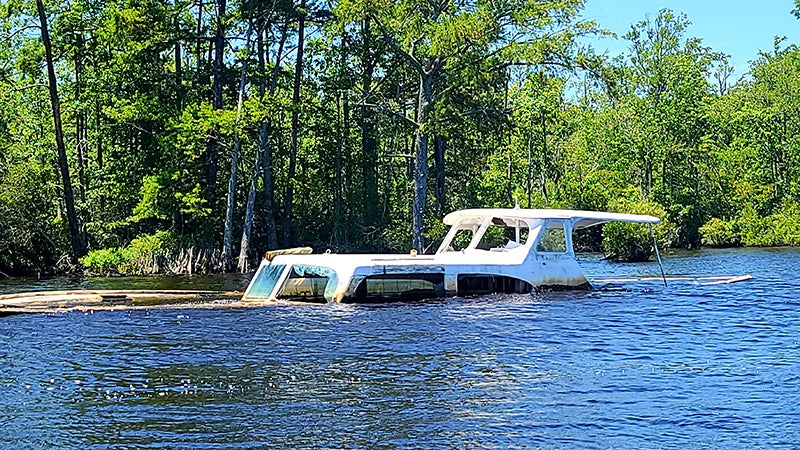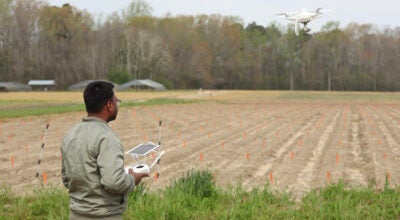Virginia proposes steps to address abandoned and derelict vessels
Published 7:06 pm Thursday, July 14, 2022

- These submerged boats are among many in the area. (Jen Jaqua photo)
|
Getting your Trinity Audio player ready...
|
After more than a year of thorough research and robust stakeholder engagement, the Virginia Coastal Zone Management Program (CZM) and Clean Virginia Waterways of Longwood University (CVW) are releasing a report with recommendations to address the high number of abandoned and derelict vessels (ADVs) in Virginia’s waterways.
The report, which also summarizes the discussions of the Virginia ADV Work Group comprised of federal, state and industry representatives, has been reviewed and approved by state natural resource agency leadership.
“Abandoned vessels pose imminent threats to coastal and inland waterways,” explains Katie Register, CVW’s executive director and co-author of the report. She continued, “Having unclaimed vessels in waterways creates navigation difficulties, environmental risks, and economic impacts, which puts humans and marine species alike at risk.”
Although it is illegal for boaters to abandon their vessels in Virginia, there are limited and expensive options for owners to dispose of their unwanted boats, tempting some to break the law.
The United States Coast Guard (USCG) – Sector Virginia, the Virginia Marine Resources Commission (VMRC), and members of the ADV Work Group have documented more than 200 ADVs in Virginia, some since 2013, but believe there are many more unaccounted for. The work group’s report proposes funding and policy changes at the state level to leverage existing state agency authority, and provide the necessary resources to create and sustain a new program to both remove ADV and engage the boating community about preventing vessels from becoming derelict. CVW and CZM are also building an inventory to assist USCG, VMRC, and local law enforcement in tracking ADV.
Once the inventory is completed, authorities can determine which vessels are a priority to remove based on their location, state of dereliction, and threat to public safety and the environment. The work group report recommends that an ADV Stakeholder Advisory Council, composed of experts from state government, environmental groups, the boating community, and marine salvage industry, be created to guide the vessel removal process in a transparent manner.
“Tackling abandoned boats will make our waterways cleaner and safer, and also develop innovative solutions to managing the waste stream created by boats that are reaching the end of their useful lives before they become an issue,” said Jeff Flood, co-author of the report.
Clean Virginia Waterways of Longwood University is a statewide organization dedicated to decreasing plastic pollution, litter, and marine debris through research, cleanup events, and building collaborations. Since 1995, more than 120,000 volunteers have removed more than 5 million pounds of debris from Virginia’s rivers and beaches during CVW’s annual cleanups that are held in September and October. CVW is funded through grants, gifts, sponsorships, and workshop fees.
The Virginia’s CZM Program is a network of state agencies and coastal localities that implements the enforceable laws, regulations and policies that protect our coastal resources and foster sustainable development across Virginia’s coastal zone. DEQ serves as the lead agency for the network. To accomplish its goals, the Virginia CZM Program administers an annual grant award of about $3 million from the National Oceanic and Atmospheric Administration (NOAA), National Ocean Service, Office for Coastal Management, through the federal Coastal Zone Management Act of 1972, as amended.






